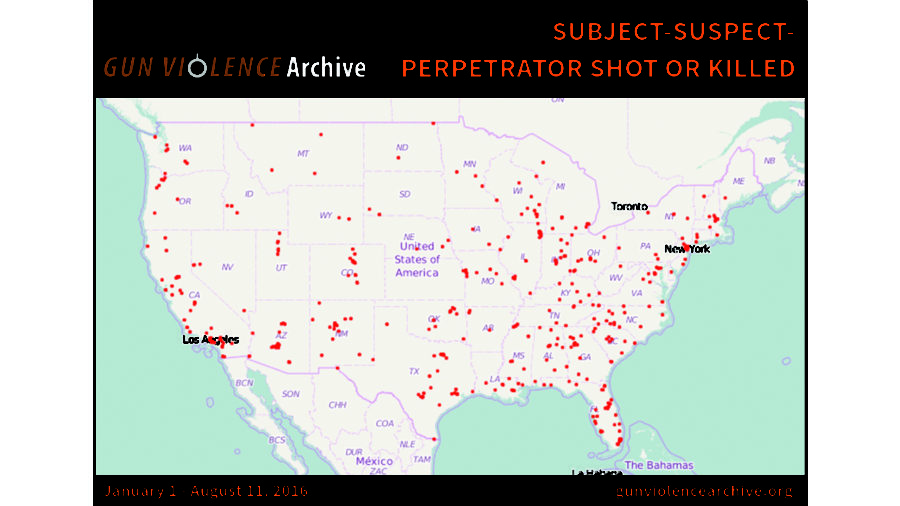According to the Gun Violence Archive, there have been 33,809 on record gun-related incidents since the beginning of 2016. Following a summer full of gun-related crimes by civilians and by the police force, the American people are rightfully won- dering if gun control will ever become a reality. Though gun reform should have happened years ago, I highly doubt that our country, more specifi- cally the federal government, is willing to take steps toward gun control in the near future.
In a 2013 Gallup poll asking why gun owners owned guns, 60 percent of gun owners polled cited personal safety as the number one reason. It makes sense that people feel safer having a gun or any other weapon. However, gun owners tend to develop a hero complex whenever gun violence makes headlines. They claim that America must continue to allow open carry laws so that those who open carry can protect everyone else whenever foreign terrorists cross their paths. While that is noble and courageous, the problem is that these gun toting, self-proclaimed heroes are never there when we need them. Studies show that we should actually be more afraid of other Americans. According to the New America Foundation, U.S. citizens have committed 80 percent of terrorist attacks since Sept. 11. Despite that, no matter who has the gun, we put our trust in police to protect us. But after a summer of infamous police brutality cases, trust in officers has wavered.
Coincidentally, officers have to play a guessing game with civilians. After the deliberate shooting that ended in death for five Dallas police officers, Dallas Police Chief David Brown struck down the hero with a gun myth and said, “It’s been the presumption that a good guy with a gun is the best way to resolve some of these things. We don’t know who the good guy is versus who the bad guy is if everybody starts shooting, and we’ve expressed that concern.”
Brown went on to urge federal lawmakers to do their jobs because “officers have a full plate.”
When speaking of gun control, peo- ple tend to think of the possible bad result it could have on our national security, and everyone seems to always want to point the finger at foreign orces like ISIS. One would think that lawmakers would have run to their desks to propose strict gun legislation after the Orlando tragedy, but that was not the case.
Not too long after the Orlando shooting, executive director of the National Rifle Association Institute for Legislative Action Chris Cox wrote, “Radical Islamic terrorists are not deterred by gun control laws.”
For many gun owners, that is reason enough to not support gun control. However, that does not mean that we should continue to do nothing on the federal level while we wait for another mass shooting that’s bound to happen.
Luckily, not all government officials are taking gun control lightly after the large number of mass shootings. NPR reported in July that gun legislation on the state level has actually increased, but the effects vary. In a paper pub- lished by Harvard Business School, researcher Deepak Malhotra wrote, “If you have a Republican legislature in your state, and you have a mass shoot- ing, the net effect if you look at the actual bills that get passed is there’s a significant increase in bills that loosen gun restrictions.”
We need tougher gun laws, and all of America knows this. But some- where along the way, most of us, especially our lawmakers, became desensitized to gun violence because it happens so often and with little to no noticeable change in gun laws. We owe it to gun violence victims to put restrictions on gun sales and usage, and it’s ultimately up to the federal government to make it happen. Even if Clinton, who favors strict gun laws, is elected president, there is a strong chance that the Republican-controlled Congress will strike down any law that includes gun restrictions. Because federal Republican and Democratic leaders can’t get on the same page, the future of gun control is bleak.

























